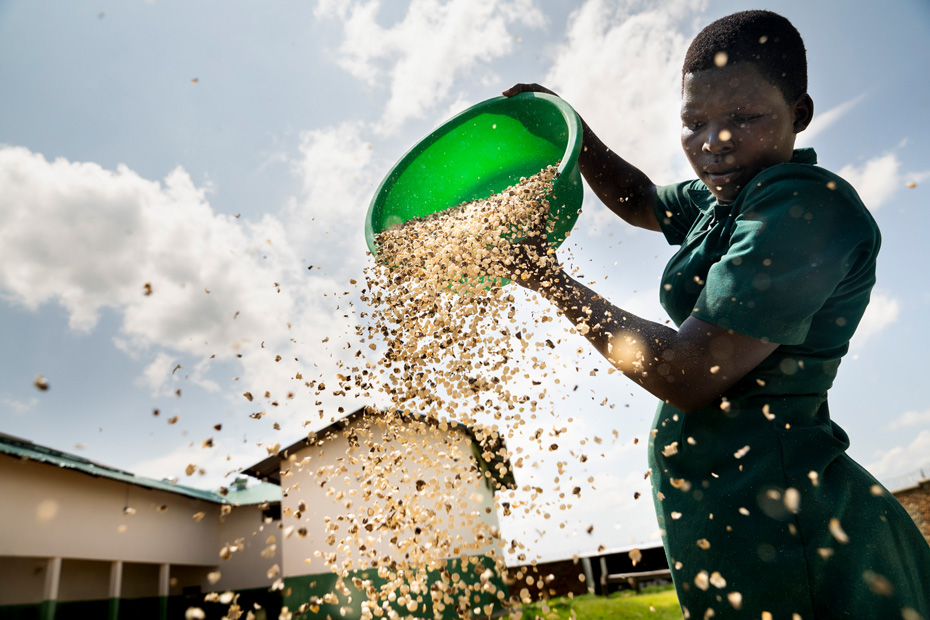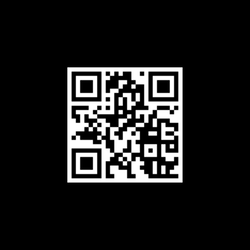We put an enormous amount of love and care into every product we make, and it’s important for us to work with suppliers who do the same.
When sourcing ingredients for our products, transparency in our supply chain is key: where they come from, how they’re made, and how they impact the communities that produce them. From raw materials like moringa oil and almonds to knot-wraps and our black pots, our dedicated Ethical Buying team works hard finding natural raw materials, safe synthetics, 100 percent recycled packaging, or alternatives to harmful ingredients like microplastics.
100 PERCENT TRANSPARENCY
A few years into Lush’s beginnings, we discovered that the essential oils we were buying were not what we thought they were. Our rose, for instance, had only 20 percent real rose in it and our jasmine was synthetic. Our team decided to dig deeper into where these materials grow and contacted international embassies for contacts. Their first trip was to Grasse, a mecca of essential oil production and perfumery, but while dealing with major suppliers, they decided to scale back and deal directly with suppliers—no middle businesses and working directly with growers whenever possible.
Working directly with farmers and communities gives us a better understanding of the materials, where they’re from, how they’re produced, and what the potential labor or environmental issues might be. We believe in buying from small-scale producers, which gives us the opportunity to drive positive change, encourage sustainability, and form long-lasting relationships with people all over the world. Knowing intimately the impact our buying has on the people and environment, we’re able to make responsible decisions about where and how we purchase ingredients and packaging.
Moringa is just one of the ingredients sourced directly from our Lush farm in Uganda.

When it comes to animal testing, we have never tested any of our products on animals nor do we use materials that contain animal derivatives that are unsuitable to vegetarians. And we only buy raw materials from companies that aren’t involved in the use of or commission the use of animals for testing and have no plans to do so in the future. We have been fighting against animal testing since day one and it’s woven into every aspect of our business, including ethical buying.
Today, our teams still work to find local sources within our own communities and as close to our factories as possible to minimize transportation and our carbon footprint. Our strict ethical buying policy has taken shape and grown over the years, making it our goal that everything we source is bought in a respectful way that safeguards the environment and animals with transparency.
GROWING PEACE THROUGH COCOA
One place where our purchases are making an impact is the Democratic Republic of Congo (DRC). Beyond its idyllic landscapes and beautiful, lush regions, it’s a place that’s endured decades of war, violence, poverty, and ongoing political instability. By investing in and supporting the growers and communities here, it’s our goal and hope that these purchases help provide economic stability and opportunity.
The Eastern Congo Initiative is a group that works to create opportunities for the citizens of the DRC, developing a Farmer Trust program that has helped revitalize the cocoa industry, so farmers were able to produce a high quality product, and giving them access to international buyers, like Lush. In fact, the creamy cocoa butter we buy is used in most of our products. And buying directly from communities here means that not only do they have some economic stability, but it helps improve the community too.
FAIR TRADE AND ORGANIC CERTIFICATIONS
Fair trade and organic are gamechangers for producers and growers. Fair trade ensures a stable price for certified producers. In return, they agree to implement environmentally responsible farming practices, fair working conditions, and investments in their communities. It’s a relationship that relies on fairness, as well as transparency and accountability. In Haiti and Morocco, for example, we work with small-scale farmers to cultivate fair trade ingredients that help support growers, empower women, and develop deeper ties to the land and its communities.
While certifications can be helpful, we don’t require that our suppliers have them in order to work with us. There are many certifying bodies each with different standards, making getting certified a long, complicated, and expensive process, especially for small-scale producers. Our direct relationships ensure that everything we source is produced using principles of fair trade, organic practices, along with good working conditions, and adheres to our strict non-animal testing policy.
FROM POTS TO PAPER
Ingredients aren’t the only materials we source as ethically as possible. Even the pots and types of paper we source must meet our strict buying standards. To tackle the plastic problem, we reduced the thickness of our clear post-consumer recycled plastic bottles in 2016 by 13 percent, saving about 13,600 lbs of plastic that year. And in the molds used to make our black pots, we moved from PVC materials to 100 percent recycled PET (polyethylene terephthalate) plastic, so they’re fully recyclable, and more sustainable.
Our approach to buying pulp, paper and packaging has always been with sustainability in mind. We source 100 percent post-consumer recycled fibres for much of the paper in our gift inserts, tags, and boxes, and we’re always looking for sustainable alternatives to plastic in our packaging. Over the years, we’ve also experimented with alternatives like wood-free Khadi paper—it’s handmade from cotton rags, helping to save cutting down forests. Recently, we partnered with Canopy, an organization committed to saving forests, so we can continue to explore the future of innovative packaging at Lush.
WHAT’S NEXT?
For now and into the future, we’re looking beyond buying sustainably. We created the Lush Investments program to invest in ethical agricultural that regenerates the land and supports communities in leading regenerative organic growing techniques. A few of our initial projects include investing in farms around the world, where we’re creating empowering relationships, while protecting biodiversity. For example, in Uganda, after decades of devastating deforestation, we’re supporting and investing in projects where farmers are growing ingredients like sesame oil, cocoa, and the moringa oil you’ll find in our Charity Pot Body Lotion.

